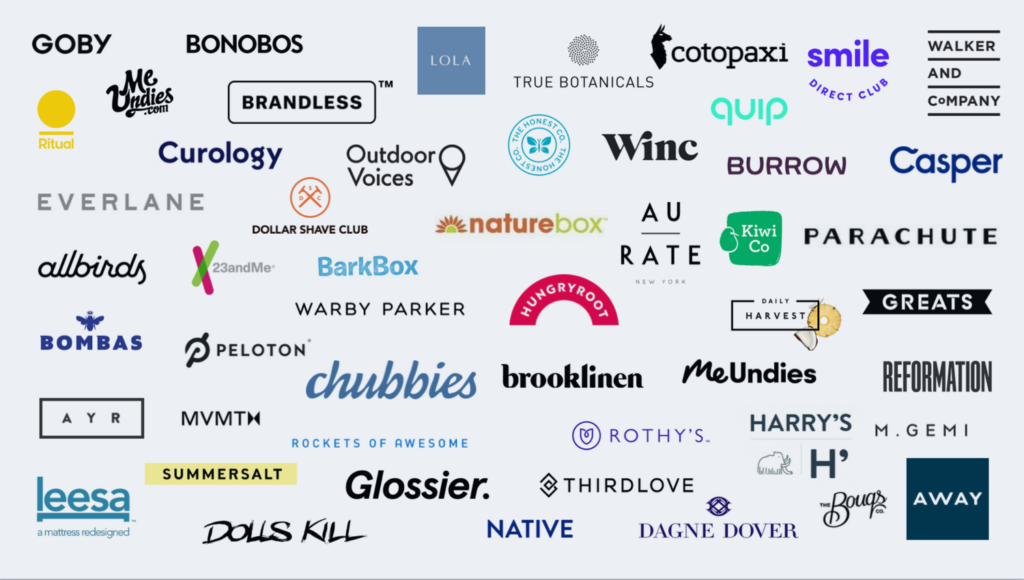10 August 2022 | Investments
Haus for Sale: What’s Next for DTC?
By
DTC
Haus For Sale: What’s Next for DTC?
The Story: Trendy aperitif startup Haus is entering a forced sale after their Series A investor pulled out of an upcoming round.
This is sad. Haus made a big splash when they debuted in 2020 with a $4.5M seed round from some fantastic investors like Shrug Capital and Raul Vohra at Superhuman.
The Problem: VCs just found religion on revenue and are now demanding profitability. That’s a big shift from the growth at all costs mindset that dominated the last 10 years.
What to Know: Unfortunately deals falling through like this happens a lot. You can plan for it — VCs are recommending you stat raising 18 months before you need the capital and run down several deals in parallel to create urgency (If you don’t do the deal someone else will) — but in this very tight fundraising environment raising for a non-software business is particularly tough.
If they were growing fast it might be possible but there aren’t a lot of term sheets going around for unprofitable businesses with fixed costs (read: physical products) and low growth.
Which feels a bit unfair because up until May unprofitable, revenue light businesses was exactly what VCs were funding… albeit with super charged growth, but venture dollars are harder to come by today.

The Big Question for DTC…

For me this raises a question about the direct to consumer industry, namely: Can they scale?
Look at the top performing DTC businesses: Away is worth $1.4B, Warby Parker $1.4B, Allbirds $726M, Casper $1.1B, Glossier $1.8B. A billion dollar valuation is nothing to scoff at but it does make you wonder whether venture is the right model for DTC businesses.
If only the very best reach a billion dollar market cap, why invest in DTC at all?
You could invest in SaaS or Fintech or AI where the big winners are worth $100B+ and there are dozens of companies worth $10B+.
Image credit goes to Part and Sum
Exits and M&As: On the other hand, LVMH is worth $350B, Nestle is worth $93B, and L’Oréal is worth $200B — so it’s certainly possible. And for early stage investors writing checks at a <$25M valuation any 9 figure exit is fantastic.
I’m curious to see if there will be consolidation over the next few years. Bonobos was bought by Walmart, might we see another company roll up Warby Parker, Away, Everlane, Dolls Kill, and maybe even Haus?
Will one of these companies punch out above the rest and break the $2B ceiling? Or become the LVMH of DTC, buying up brands like LVMH has bought Dior, Sephora, Gucci, Fendi, ****Fenty, ****and now Tiffany’s?
What do you think? If you have a take on investing in DTC companies I’d love to hear it.
SELF-DRIVING
Baidu Opens the Self-Driving Taxi Business
Baidu secured permits for self-driving taxis in two of China’s largest cities, Wuhan and Chongqing.

Uber but… Profitable?
Self-driving is a huge deal for Uber-esque ride hailing businesses. Travis Kalanick’s original vision was a fleet of self-driving cars. You could argue, and I would, that it’s the only way to make the Uber model work.
Despite $8.1B in revenue last quarter Uber still lost $3B. The fastest way to solve that problem? Self-driving taxis.
Eliminating drivers would unlock unlimited, free supply for Uber. Instead of paying drivers the majority of revenue from of every ride, they’d keep every dollar, transforming the business over night.

Ethics?
Self driving is all about acceptable risk. If self-driving cars got into the same number of accidents as humans would that be acceptable? What if they only got into 5% as many accidents as humans? What risks are we willing to tolerate from machines? These are ethical questions.
In the US regulators have overwhelmingly answered: It’s not safe enough. The Chinese feel differently. Baidu unveiled the Apollo RT6 EV last month, a new autonomous electric vehicle that, with these new permits, will be whisking passengers to their destinations by January. They plan to have large scale autonomous ride hailing in both cities by 2024. Which means…
We could soon live in a world where self-driving cars are the dominant mode of transport in China but still illegal in the US.

SANCTIONS
The US Treasury Sanctions Tornado Cash
Tornado Cash is a way to take crypto from any wallet and send it to another one anonymously. It’s been used in every single crypto hack and theft to make funds disappear without a trace.

Beanstalk, Axie, Terra… The list of hacks enabled by Tornado Cash could fill this newsletter three times over. The US government finally caught on because it was used by cyber attackers from North Korea.
This seems like a good thing BUT —
- The move blocks users from accessing $437 in assets — legitimate users didn’t know it was going to be sanctioned and some funds from institutions like Circle are now frozen
- There are legitimate use cases for Tornado Cash. Because blockchains are completely transparent if anyone knows your wallet address they can view every financial transaction you ever made. For instance your employer if you’re paid in crypto or any service provider you buy something from. Tornado Cash is a privacy tool.
- Tornado Cash is open source and fork-able. By tomorrow there will be five different services that all do what Tornado Cash did, built on a copy of Tornado Cash’s code, but not Tornado Cash and therefore not sanctioned. Even if they were sanctioned, it’s not that hard to make a ‘crypto mixer’ from scratch. Ultimately mixers are a kind of technology. It’s like the SEC is trying to eliminate televisions by sanctioning Samsung.
- Last, they’re banning it to prevent criminals from using it but are sanctions going to stop North Korean hackers? Although, because it relies on large pools of funds to hide crypto transactions starving it of users might break the contract, making it useless. We’ll see.
Jimmy Fallon: Hilariously, earlier today someone started sending small amounts of money from Tornado Cash to celebrities including Coinbase CEO Brian Armstrong and Jimmy Fallon.
It’s impossible to block incoming crypto transactions to a wallet but does this mean Jimmy Fallon is violating US sanctions law? We’ll see what the court says.